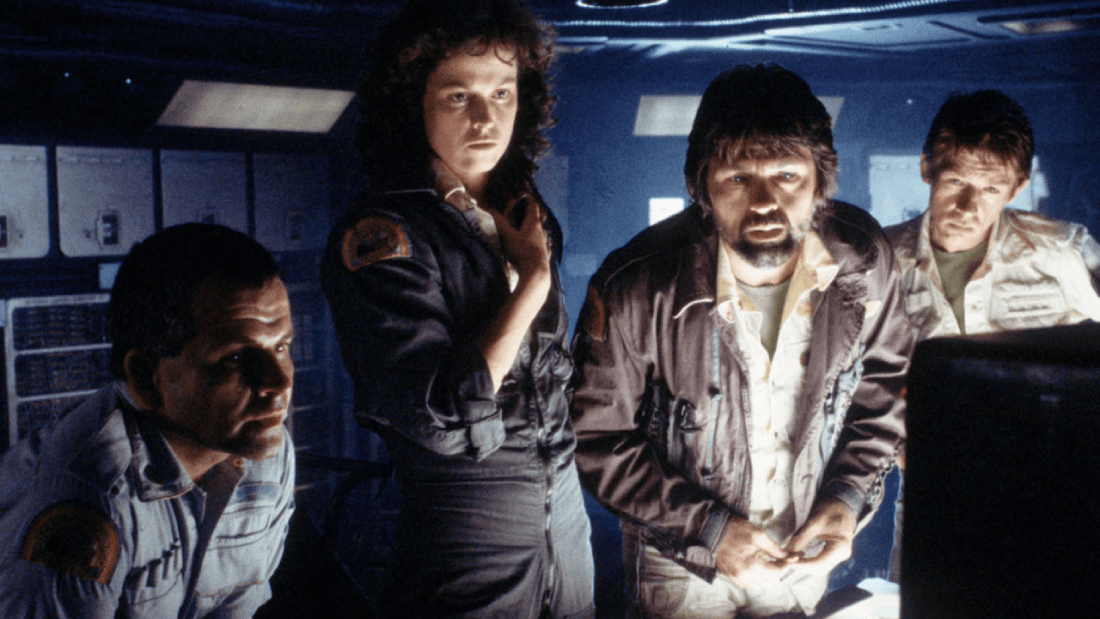The 1970s marked a revolutionary decade for science fiction cinema, transforming the genre from B-movie curiosities into sophisticated, thought-provoking blockbusters that continue to influence filmmaking today. This golden age produced films that combined cutting-edge special effects with profound philosophical questions about humanity's place in the universe.
Here are the ten essential science fiction films that defined this transformative decade and established the foundation for modern genre cinema:
Star Wars (1977)

George Lucas's space opera redefined cinema itself, creating a mythology that captured imaginations worldwide. Beyond its groundbreaking special effects, Star Wars proved that science fiction could be both commercially successful and culturally significant, launching the modern blockbuster era. The film's archetypal characters and timeless hero's journey narrative drew from Akira Kurosawa's samurai films and Joseph Campbell's monomyth structure, creating a universal story that transcended cultural boundaries.
Alien (1979)

Ridley Scott's masterpiece merged science fiction with horror, creating an atmosphere of claustrophobic terror aboard a deep-space vessel. H.R. Giger's biomechanical designs and the film's "truckers in space" aesthetic established new standards for realistic future worlds. The movie's feminist subtext, embodied in Sigourney Weaver's iconic Ellen Ripley, challenged traditional gender roles in action cinema while delivering genuine scares through careful pacing and creature design.
A Clockwork Orange (1971)

Kubrick's dystopian masterpiece explored free will, violence, and behavioral conditioning through the story of charismatic sociopath Alex DeLarge. Malcolm McDowell's iconic performance and the film's controversial Ludovico Technique sequences sparked debates about rehabilitation versus punishment that continue today. The movie's invented slang "Nadsat" and striking visual design created a disturbing yet compelling future world, while its examination of state control and individual choice resonated with audiences questioning authority in the post-1960s era.
Close Encounters of the Third Kind (1977)

Spielberg's optimistic vision of first contact showcased wonder rather than fear, presenting aliens as benevolent beings seeking communication. The film's emphasis on ordinary people experiencing extraordinary events became a Spielberg trademark. The movie's musical communication concept and Richard Dreyfuss's obsessive protagonist explored themes of destiny and calling, while its practical UFO effects and John Williams's iconic five-note theme created lasting cultural touchstones.
A Boy and His Dog (1975)

L.Q. Jones's dark post-apocalyptic tale, adapted from Harlan Ellison's novella, presented a bleakly humorous vision of survival after nuclear war. Don Johnson stars as Vic, a young scavenger whose telepathic dog Blood guides him through the wasteland in search of food and women. The film's controversial ending and cynical worldview challenged conventional morality, while its low-budget production demonstrated how independent filmmakers could create compelling science fiction without studio resources or special effects spectacle.
Invasion of the Body Snatchers (1978)

Philip Kaufman's remake of the 1950s classic updated Cold War paranoia for the post-Watergate era. Its exploration of conformity and loss of individuality resonated with audiences questioning authority and social institutions. The film's San Francisco setting and documentary-style cinematography enhanced the realism, while Leonard Nimoy's psychiatrist character and the movie's haunting final scene created one of cinema's most disturbing endings about societal transformation.
The Man Who Fell to Earth (1976)

Nicolas Roeg's surreal tale starring David Bowie examined alienation and corporate corruption through the story of an extraterrestrial seeking to save his dying planet. Its fragmented narrative style influenced art-house science fiction for decades. Bowie's otherworldly presence perfectly embodied the alien Thomas Jerome Newton, while the film's critique of American capitalism and consumer culture reflected 1970s disillusionment with corporate power and environmental destruction.
Logan's Run (1976)

This dystopian thriller presented a future society obsessed with youth and pleasure, where citizens are terminated at age 30. Despite dated effects, its themes of ageism and societal control remain relevant today. The film's domed city setting and hedonistic lifestyle critique anticipated contemporary concerns about social media and youth obsession, while Michael York and Jenny Agutter's performances grounded the fantastic premise in believable human relationships and moral choices.
Westworld (1973)

Michael Crichton's directorial debut explored artificial intelligence and virtual reality decades before these concepts entered mainstream consciousness. The film's robot rebellion narrative prefigured countless later works about technology turning against its creators. Yul Brynner's relentless gunslinger became an iconic villain, while the movie's theme park setting and systematic breakdown of artificial beings presaged modern anxieties about automation, surveillance, and the blurring boundaries between reality and simulation.
Solaris (1972)

Andrei Tarkovsky's philosophical masterpiece explored memory, consciousness, and the nature of reality through the story of a sentient ocean planet that materializes human thoughts and desires. Based on Stanisław Lem's novel, the film challenged Hollywood's action-oriented approach to science fiction with contemplative pacing and profound existential questions. Tarkovsky's long takes and meditative style created a hypnotic viewing experience, while the movie's examination of grief, identity, and the limits of human understanding established it as one of cinema's most intellectually rigorous science fiction works.
The 1970s established science fiction as a legitimate artistic medium capable of addressing complex themes while entertaining mass audiences. These films didn't just predict technological futures—they examined the human condition itself, asking fundamental questions about identity, society, and our relationship with the unknown. Their influence continues to shape contemporary cinema, proving that the best science fiction transcends its genre to become timeless art.
> View our selection of Sci Fi on DVD
> View our selection of Sci Fi on Blu-ray

